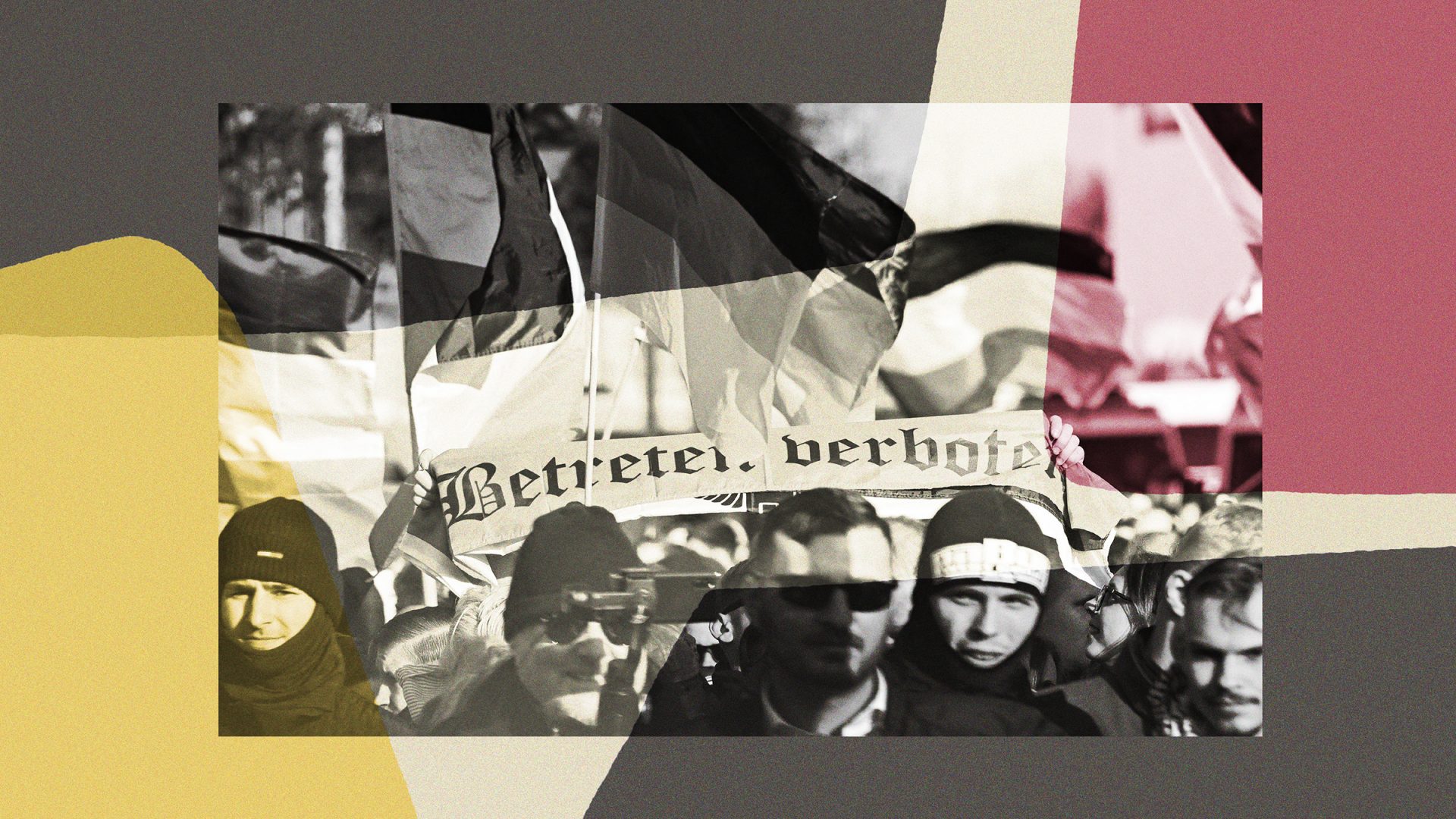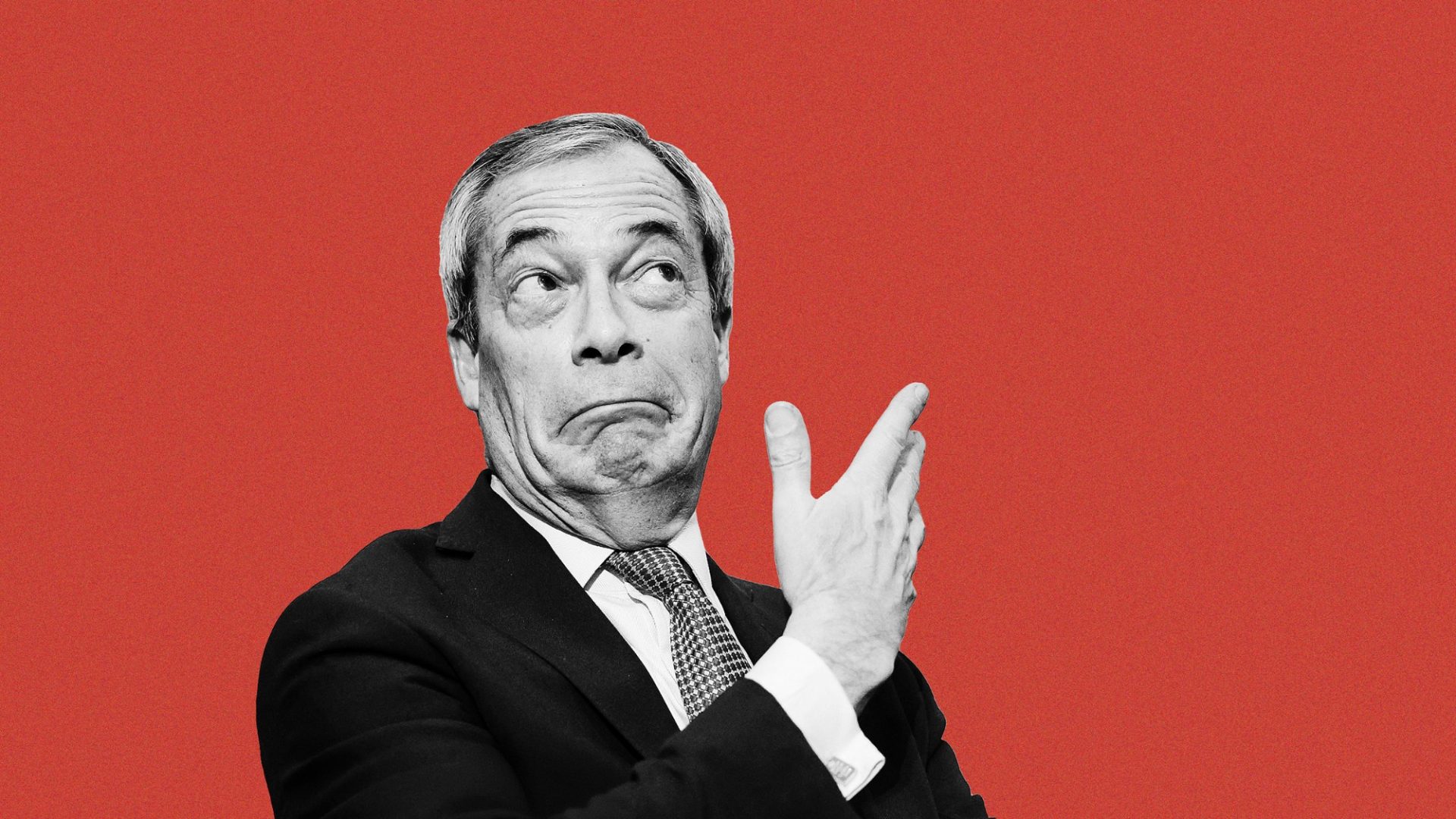Last week, Germany’s domestic intelligence agency, the Bundesverfassungsschutz, made official what most people with functioning moral compasses have long believed. The Alternative für Deutschland (AfD) is officially categorised as a right wing extremist organisation. Not just in three Eastern Bundesländer, as they were before, but nationwide.
This was the kind of bureaucratic bombshell that comes with footnotes, will lead to court rulings, help the AfD to self-identify as a political martyr and cause controversy in Friedrich Merz’s new coalition.
The decision was made public only days before interior minister Nancy Faeser (SPD), whom the Verfassungsschutz answers to, left office for good. Her successor, Bavarian conservative Alexander Dobrindt, will now have to deal with the consequences of this difficult parting gift. You can call it a constitutional minefield. Happy first day at the office, mate.
Now, the AfD have had this coming. The party has been under surveillance officially and unofficially in several states and their radicalisation over the past few years has been about as subtle as a German oompah-oompah band in an Indian yoga retreat.
The report, which is still confidential, draws on information from 2021-2025 – and its publication was timed for after the federal election, because otherwise the cry of “political interference” may have caused more harm for the general trust in institutions than to AfD. But it wasn’t communicated well.
In a briefing to journalists (the courts, which the AfD will certainly turn to, tend to not like that kind of thing at all) the decision was justified by the party’s “prevailing ethnic and descent-based understanding of the Volk”, which is “not compatible with the free democratic basic order.” According to the Verfassungsschutz, it “aims to exclude certain population groups from equal participation in society, to discriminate against them and therefore not to treat them as equals in legal terms.” The AfD also cultivates an “exclusionary understanding of the Volk”, the report says.
To document this, domestic intelligence draws upon terms used by AfD members such as “Passdeutsche” (meaning they “only” have a passport, but aren’t proper Germans), “Großer Austausch” (great replacement), “Umvolkung” (ethnic replacement) and “Messermigranten” (knife migrants).
As we commemorate the 80th anniversary of the Kriegsende, Germany is proud of its rule of law: the Verfassungsschutz has a legal mandate and it doesn’t throw accusations around lightly.
Given the significance of labelling the largest opposition party “extremist”, however, you’d think someone might have come up with more than a meagre press release and to hand out an English version of it, too.
And considering that only very few people have actually read the roughly 1,100-page report by an executive agency, the demands to “ban AfD now” by trade unions, the Green Party and parts of the SPD are premature. Which is why the political centre right is guarded, although the CDU/CSU, too, is discussing what the consequences of this new ruling should be.
If upheld by the courts, it opens the door to serious surveillance powers – think wiretaps, undercover agents, and the full democratic-defence toolkit, potentially used against high-ranking members of the parliamentary opposition. Note: Members of the Linke, a party considered far left extremist in some states, have successfully sued against such measures.
Another tricky question is how to deal with civil servants, police officers, members of the army or the judiciary who are AfD members. Under German law, state employees must be loyal to the democratic constitution. Being a card-carrying member of an officially extremist party isn’t exactly a confidence-booster – on the other hand, every individual case has to be treated, well, individually. So sacking a teacher because of his membership alone isn’t likely to happen.
The legal, ethical, and bureaucratic consequences are still being debated – fiercely.
In the latest representative survey, 61% consider the AfD to be an extreme right wing party, 31% do not. And in addition, 48% of respondents are in favour of a ban, while 37% are against.
Banning the AfD altogether is legally conceivable, in theory, but politically combustible. The hurdles are sky-high, and the potential backlash even higher. As tempting as the dream of an AfD-free Bundestag may be, banning the party wouldn’t make the anger and fear that fuel it disappear.
The only sustainable way to reduce voters’ support is through competent, visible, effective governance.




